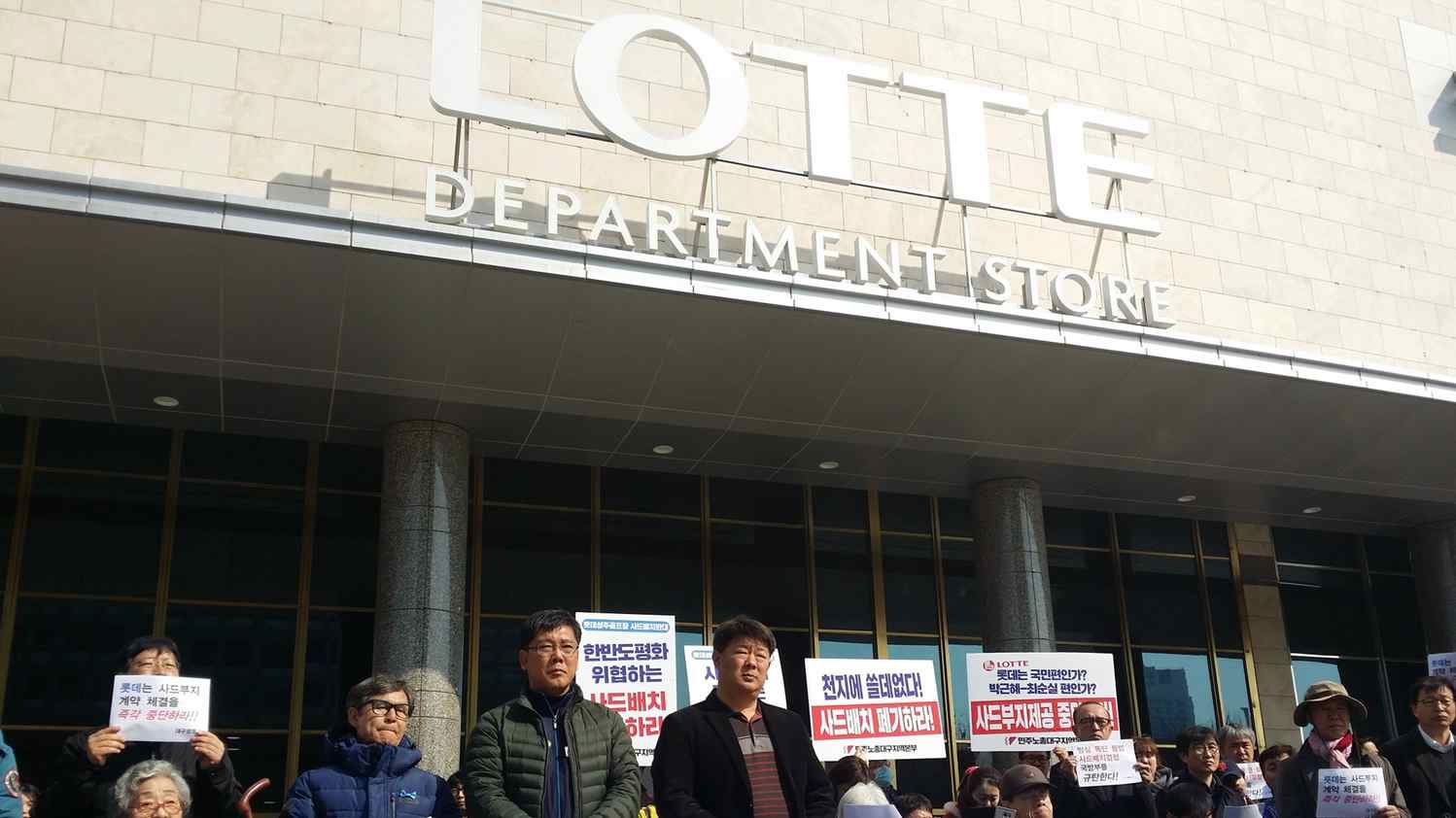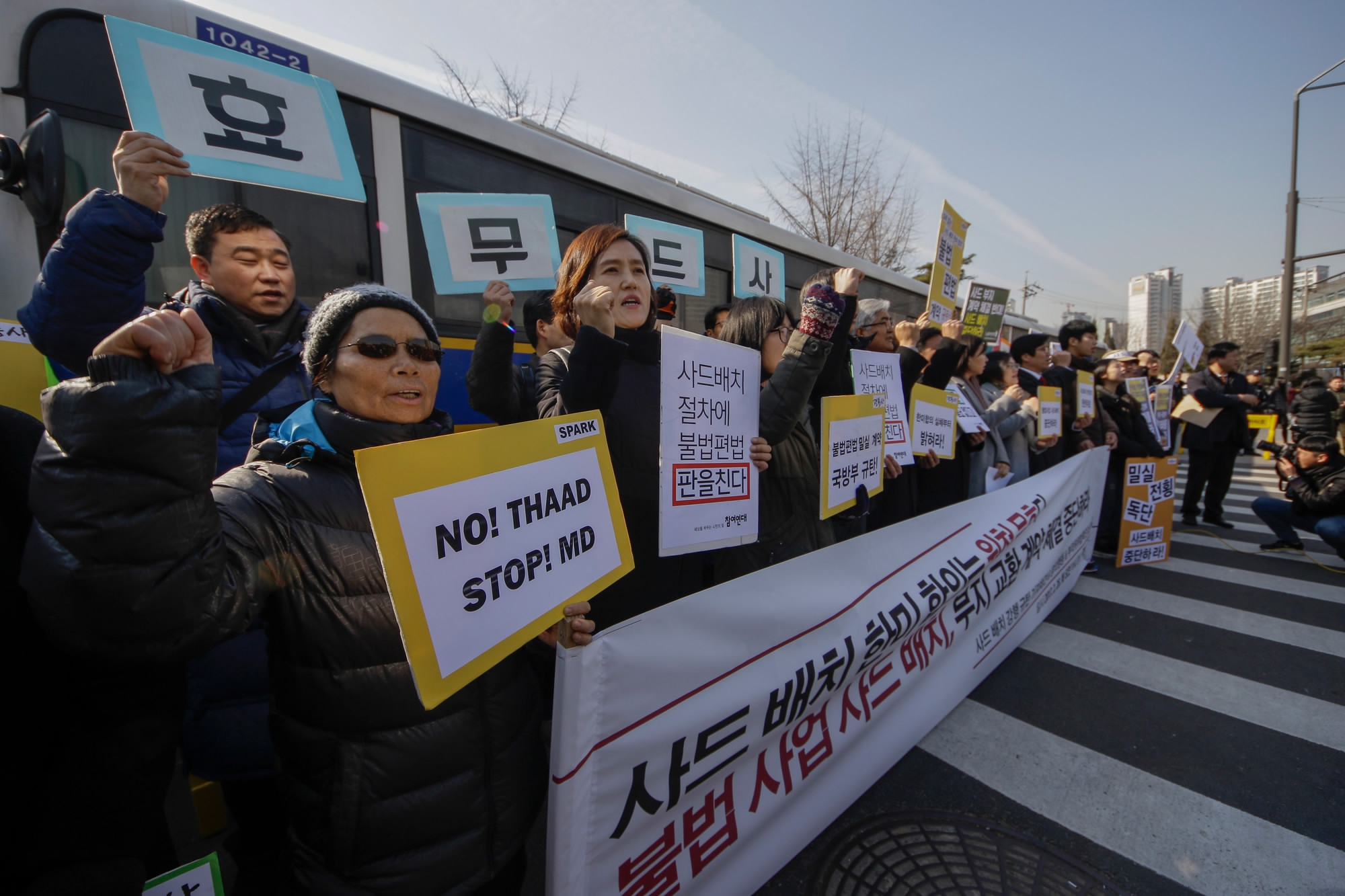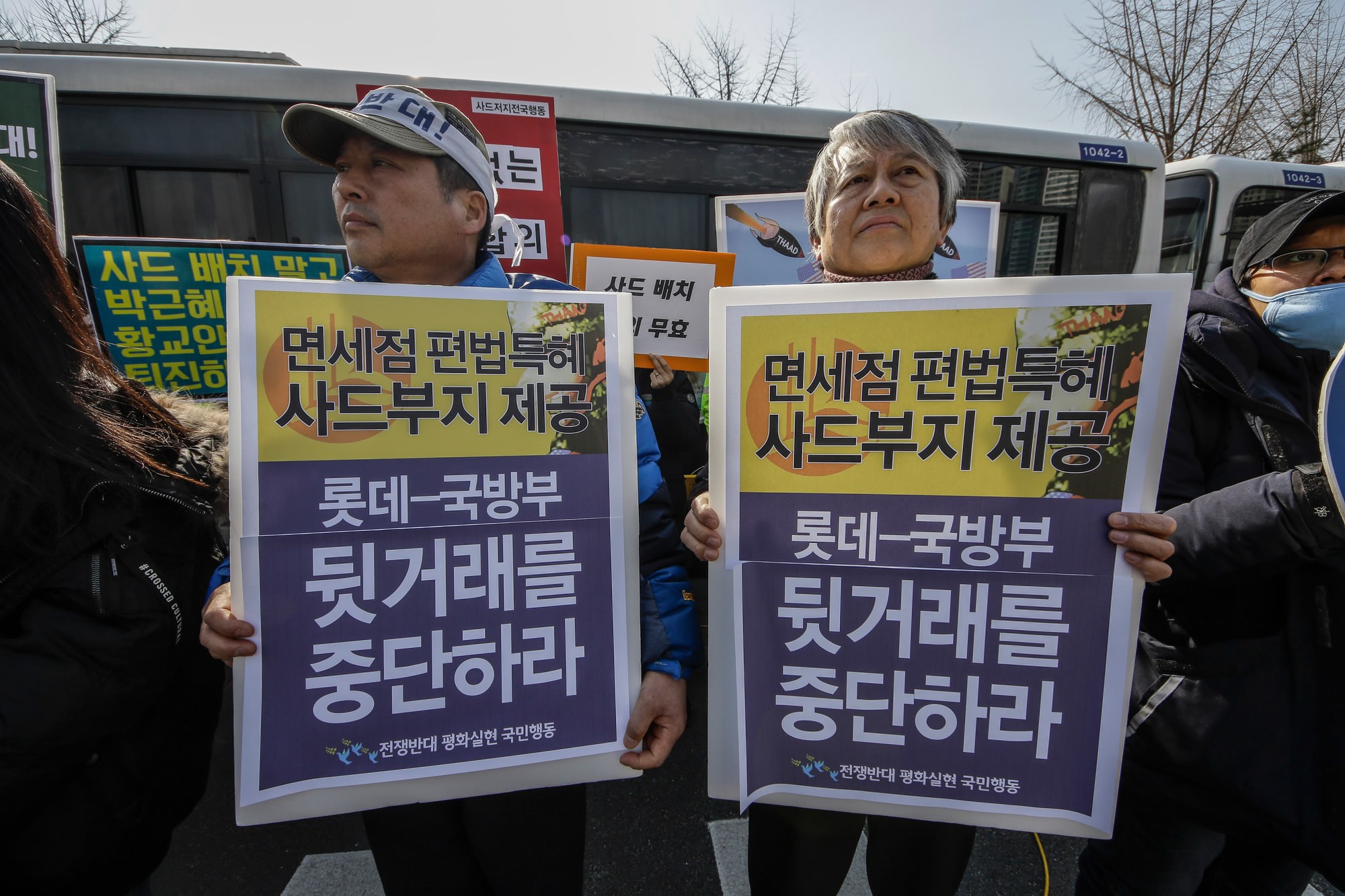Opinion: Great uncertainties surround THAAD deployment in South Korea
2017-03-03 19:49:17 GMT+8

Editor
Tong Xinxin
Guest commentary by Han Xudong
On February 28, South Korea’s Lotte Group officially signed a land swap deal with the country’s Defense Ministry, which marked the operational phase of the substantive deployment of the US anti-missile system, Terminal High Altitude Area Defense (THAAD), on South Korean soil.
Can THAAD eventually be installed in South Korea?
There are great uncertainties.
THAAD deployment in South Korea may bring considerable harm, which may lead to a sudden surge in pressure calling for blocking its entry in the country.

South Korean protesters stage a rally to oppose a plan to deploy THAAD, in Seoul, South Korea on February 28, 2017. /CFP Photo
The US anti-missile system entering South Korea can cause crises not only on the Korean peninsula, but also in Northeast Asia.
Even the security of the Asia-Pacific region can be jeopardized, that’s mainly because the deployment may destabilize the security situation in the region, and destroy the balance of strategic power. Meanwhile, it will greatly impact the stability of the military relations of the major countries in the region.
With the signing of the land provision deal, pressure is also rising to halt the THAAD deployment in South Korea.

South Korean protesters stage a rally to oppose a plan to deploy THAAD, in Seoul, South Korea on February 28, 2017. /CFP Photo
Lotte’s move may become a new flashpoint in South Korea. Ever since the government approved the THAAD deployment, eyes started to focus on the attitude of Lotte Group in regards of whether the company would agree on the land contract.
Lotte seems to be pushed to the limit. Its attitude and position would directly decide if the deployment of THAAD can take the vital first step forward. In this regard, Lotte should bear its historical responsibility.
The signing of the land swap deal with the Defense Ministry could make Lotte the direct responsible of the unrest in this region. It’s no exaggeration that the pressure to stop the installation of THAAD directly points to Lotte Group.
Whether Lotte can bear such pressure or not has to do with many factors.
One thing for sure is that if Lotte cannot handle such stress, it will become the tipping point of a new round of crisis in South Korea. While the political crises of South Korea are yet to be over, the country is likely to plunge into economic crisis, and that’s what South Koreans should deeply consider.
The relationship between South Korea’s government and the country’s enterprises will become more subtle. President Park Geun-hye’s political crisis was caused by the nasty dealings between both sides. Again, this time, the deal between Lotte Group and the South Korea government threatens the security of the nation.
Facing such great external pressure, how should Lotte tackle its relationships with the government? This case may push the enterprise-government relationships to a delicate situation.
At present, Chinese consumers are exerting pressure by boycotting Lotte, which is understandable as the company’s decision directly threatens China’s national security. This move has just exerted superficial pressure to Lotte’s land swap deal; however, the deeper deal between Lotte and the South Korean government remains untouched.
It is still possible that Lotte could adjust its position and attitude, which also means that there are still great uncertainties to the deployment of THAAD to South Korea.
(Han Xudong, Professor of Strategic Teaching and Research Department, National Defense University in Beijing. The article reflects the author's opinion, not necessarily the view of CGTN.)
Copyright © 2017
